South Korean president warns of crackdown on crippling trucker strike
South Korean president Yoon Suk-yeol warned that the government might step in to break up a nationwide strike by thousands of unionized truckers describing it as an “illegal and unacceptable move”, disrupting the supply chain.
“The public will not tolerate taking the logistics system hostage in the face of a national crisis,” Yoon said in a Facebook message late on Thursday, noting that exports were key to overcoming economic instability and financial market volatility.
As Yoon referred to the South Korean law that gives the government the authority to force transport workers back to their jobs during any serious disruptions, saying that “If the irresponsible denial of transport continues, the government will have no choice but to review a number of measures, including a work start order.”
In South Korea, failure to comply is punishable with up to three years or a fine of up to 30 million won (22,550 dollars).
According to Transport Minister Won Hee-ryong, the ministry has already begun the groundwork for issuing the order, he told the reporters on Thursday.
If issued, it would be a first-of-its-kind move to be issued in South Korea’s history.
Till now there has been no dialogue between the union officials and the government.
The country’s transport ministry said it requested talks with the union on Thursday, but the parties have yet to agree on a date.
The truck strikes that were launched on Thursday are their second large strike in less than six months seeking better pay and working conditions.
Aimed at disrupting supply chains across the world’s 10th-largest economy, at least 25,000 are on strike out of 420,000 transport workers in the country, estimated by union officials.
According to the transport ministry, about 7,700 people were expected to rally for the strike on Friday in 164 locations nationwide, down from 9,600 people on Thursday.
It was noticed in October that exports fell to their lowest in 26 months as its trade deficit persisted for a seventh month, thus affecting its export-driven economy, thus resulting in strikes.
The head of the Cargo Truckers Solidarity Union (CTSU), Lee Bong-ju, said the truckers had no choice but to strike after the government stalled negotiations.
“The Yoon Suk-yeol government is threatening a hard-line response without any efforts to stop the strike,” Lee told reporters on Thursday.
The walk out has caused heavy losses to many industries including the steel sector, the cement industry, and the automaker industry.
The cement industry noted an output loss of an estimated 14.26 million dollars as shipments dropped to less than 10,000 tons due to the strike on Thursday, compared to the country’s 200,000 tons of cement demand per day in the peak season between September and early December.
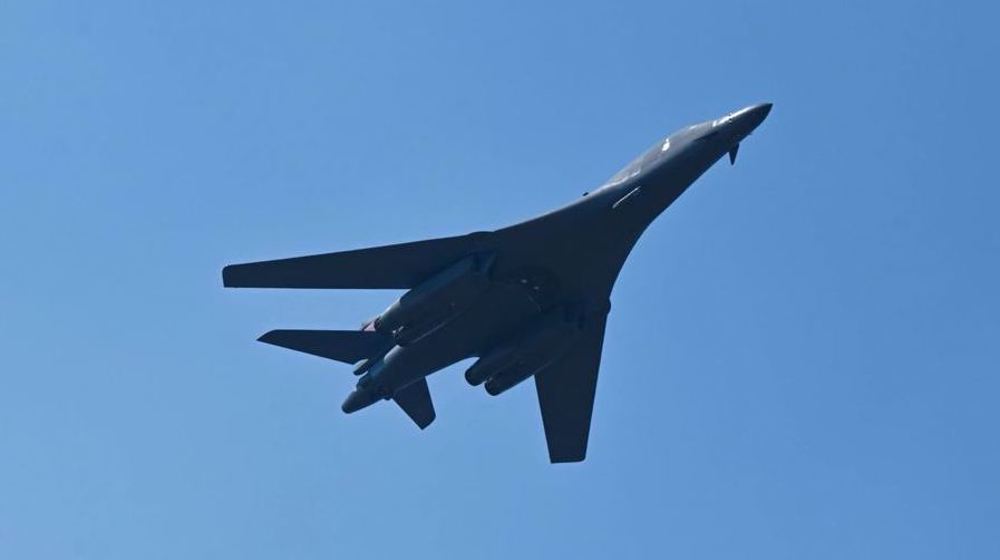
North Korea: US military provocations escalating under Trump
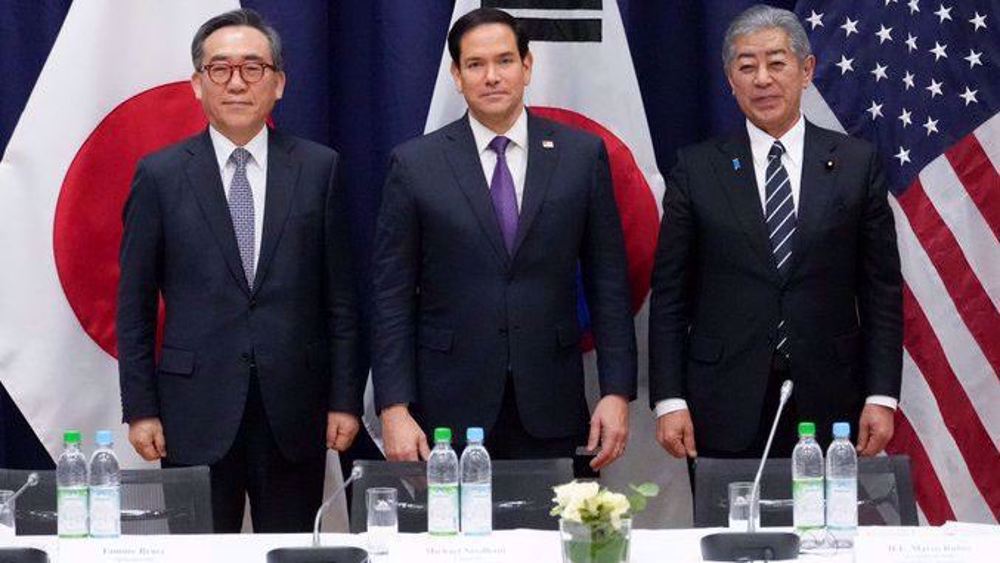
US, Japan, S Korea renew calls for ‘complete denuclearisation’ of North Korea
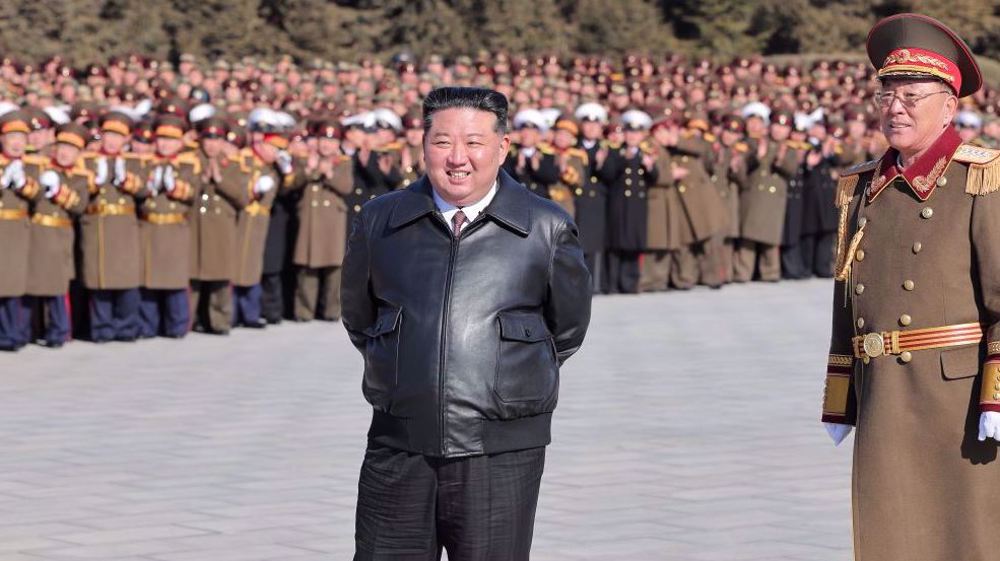
North Korea leader slams US for prolonging Ukraine war due to ‘wild ambition’
US official vows to imprison pro-Palestine protesters for years
Arab states condemn Israel's new aggression against Syria
IRGC adds homegrown warship, fast attack craft to naval fleet
VIDEO | Press TV's news headlines
Over 700 bodies recovered in Gaza, most remain unidentified
VIDEO | US TikTok ban
Palestinian youth succumbs to injuries sustained in West Bank strike
US Attorney General hints at Epstein files release amid skepticism


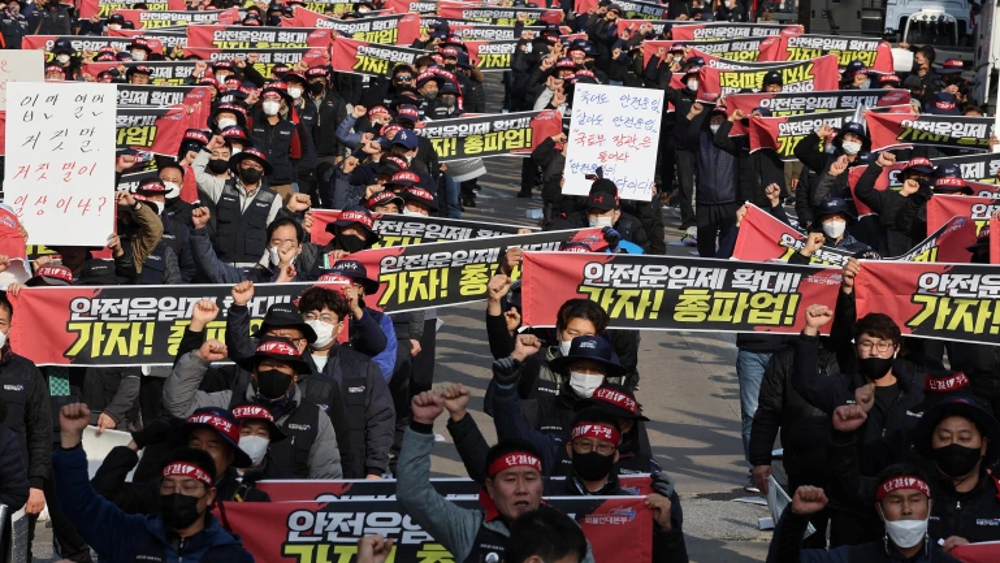
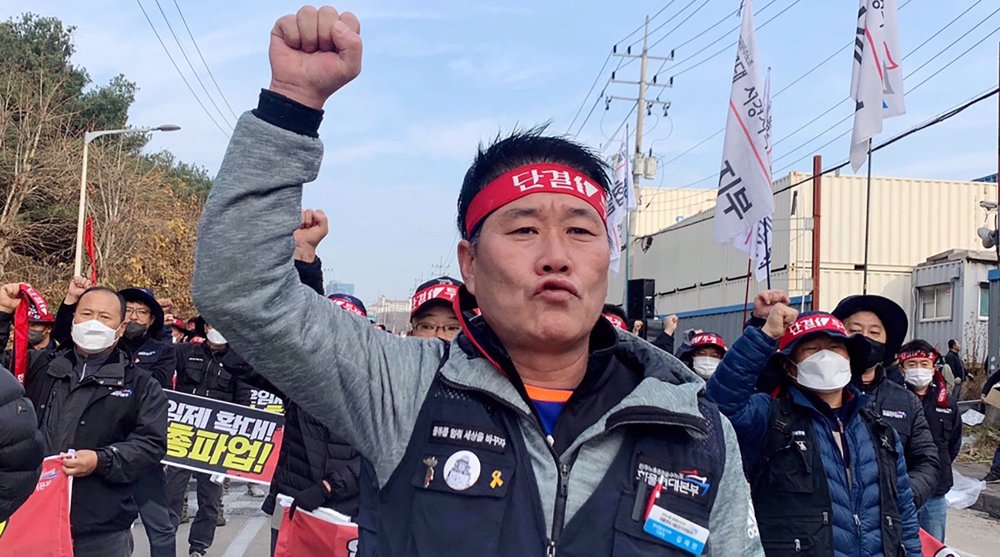



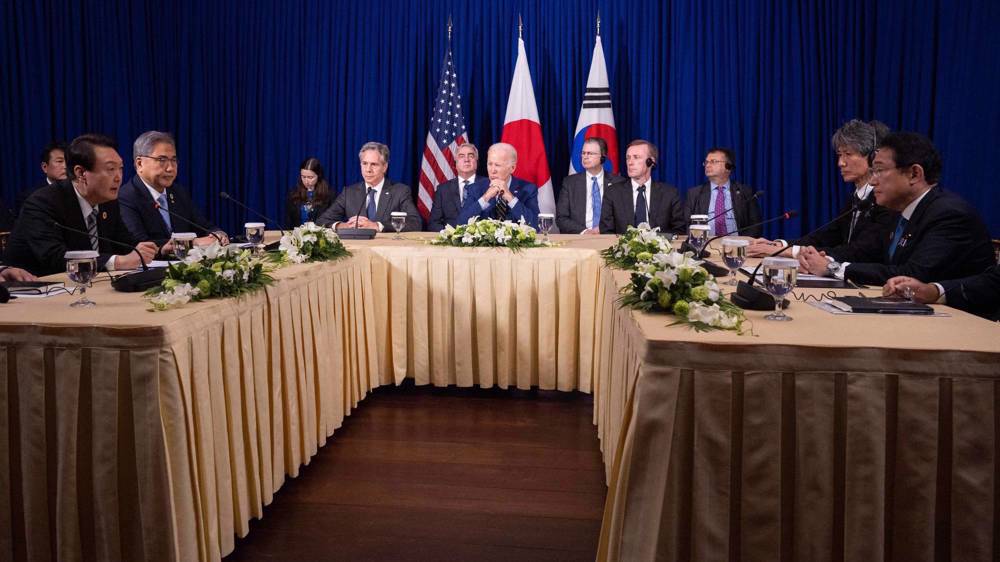
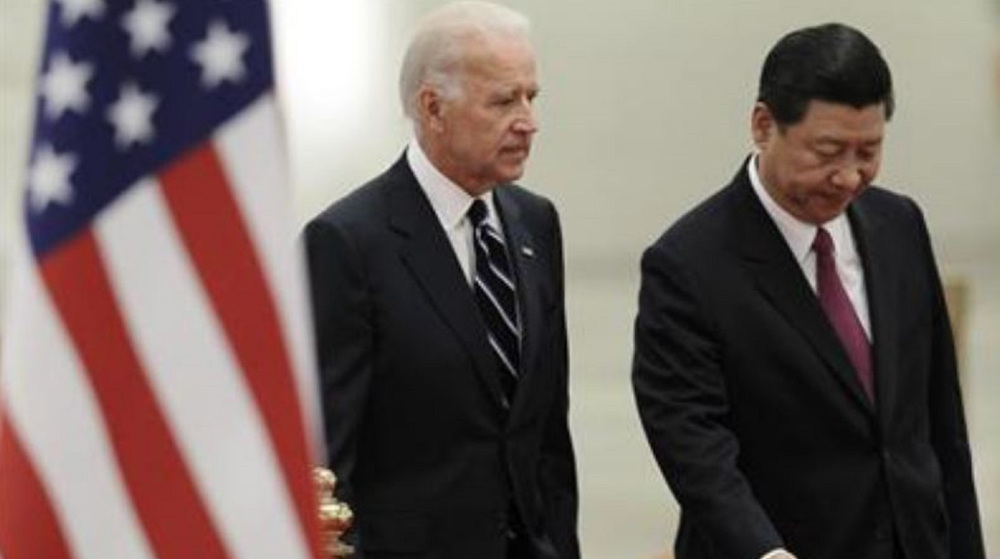
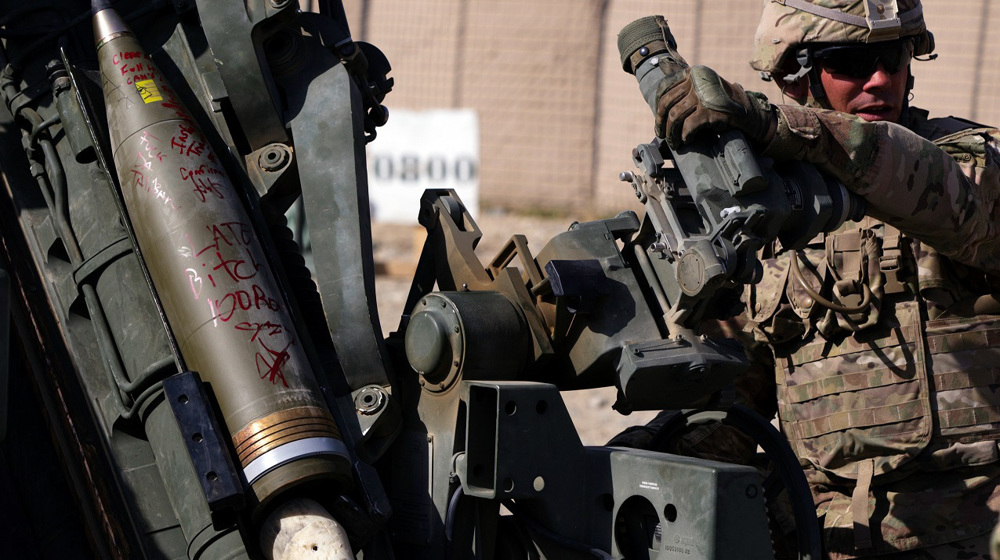
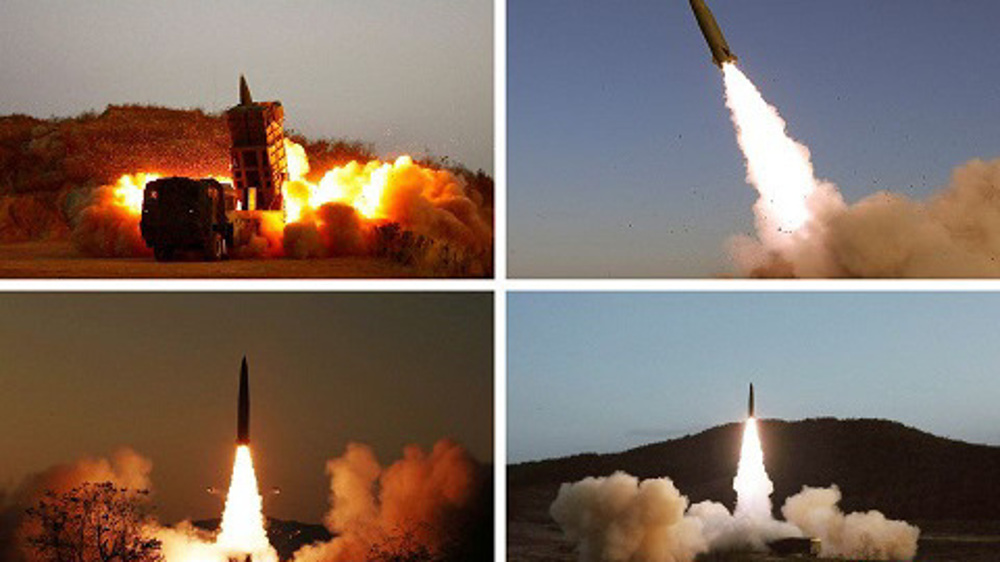
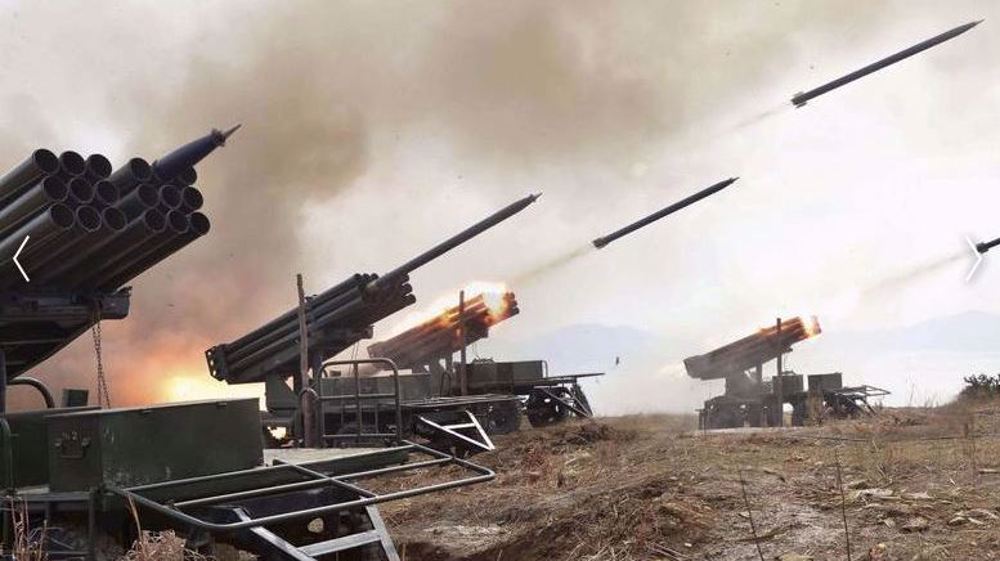
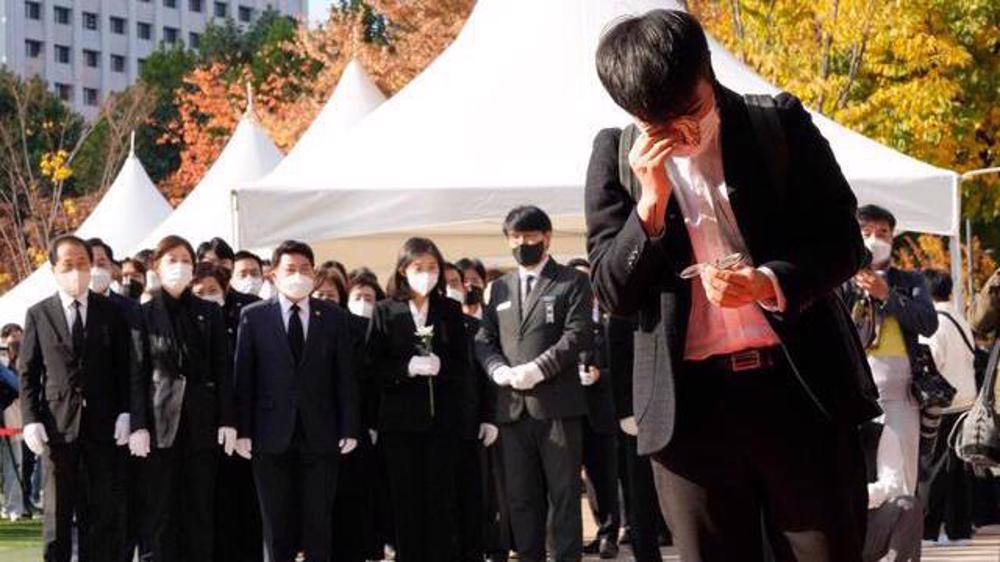

 This makes it easy to access the Press TV website
This makes it easy to access the Press TV website